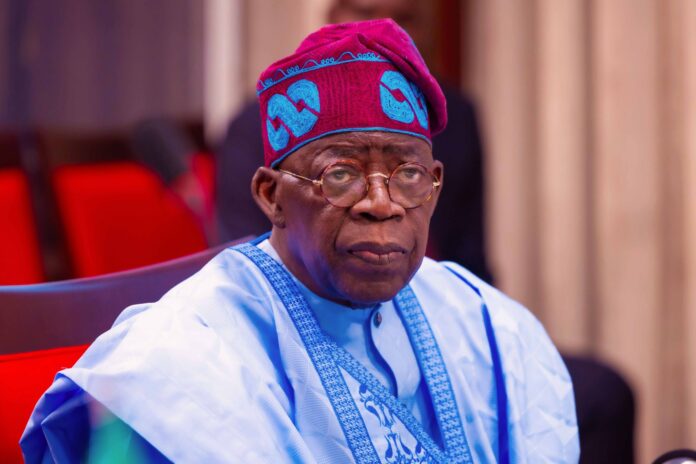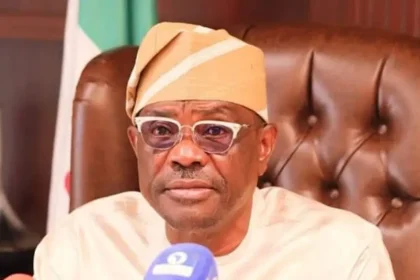By Adeyemi Adekunle
President Bola Tinubu has called on the Nigerian media to rally behind his administration’s proposed tax reforms, describing them as a vital foundation for building sustainable national wealth and fostering prosperity for all citizens. Tinubu’s plea came during the 2024 Nigerian Media Merit Awards held at the Muson Centre in Lagos, where he underscored the pivotal role of the press in shaping public understanding and guiding the nation toward collective progress.
Represented by the Minister of Information and National Orientation, Mohammed Idris, the President outlined his administration’s commitment to creating a modern, inclusive tax framework that not only eases the burden on citizens but also stimulates economic growth. While acknowledging that tax reforms remain a contentious issue, he stressed that there is broad national agreement on the urgent need to overhaul Nigeria’s outdated tax administration system.
“We may not all agree on every detail of the required reform,” Tinubu stated, “but there will be many areas of convergence. Our policies are deliberate, bold, and well-thought-out. This is a path that requires a comprehensive approach—one that addresses economic diversification, human capital development, infrastructure growth, and wealth creation for all Nigerians.”
The President highlighted the overarching goals of the proposed tax bills currently before the National Assembly. The reforms aim to streamline the number of taxes, ease the financial burden on vulnerable Nigerians, and enhance fiscal federalism by increasing the share of tax revenue allocated to state governments.
More critically, Tinubu emphasized the importance of fostering a thriving business environment by introducing targeted incentives that encourage investment and entrepreneurial growth.
Tinubu’s administration has embarked on several bold economic initiatives under the Renewed Hope Agenda, including the removal of fuel subsidies, unification of multiple exchange rates, and restructuring of the tax system.
These policies, he explained, are designed to free up resources that can be redirected toward critical areas such as infrastructure development, economic growth, and human capital advancement.
“Among our landmark reforms is the tax overhaul—perhaps one of the most profound steps we must take to set Nigeria on the path of enduring prosperity. These measures are not just economic decisions but necessary steps to restore confidence, create jobs, and improve the lives of all Nigerians,” Tinubu added.
The President also touched on the financial gains being realized from these policies, particularly in terms of increased revenues distributed monthly among federal, state, and local governments.
Highlighting his administration’s push for financial autonomy for local governments—the tier closest to the people—Tinubu argued that empowering local administrations would have a direct impact on grassroots development and governance.
Amidst the policy discussions, Tinubu called on the Nigerian media to amplify accurate narratives around the tax reforms. He emphasized that the press has a critical role in countering misinformation, fostering dialogue, and guiding citizens toward a better understanding of government policies.
“The media serves as the bridge between policymakers and the people,” Tinubu noted. “We rely on you to communicate these reforms clearly and purposefully. Your role in countering misinformation, educating the public, and fostering a sense of shared responsibility cannot be overstated.”
The President’s remarks come at a time of heightened public scrutiny and mixed reactions to his administration’s economic policies. While some stakeholders have lauded the reforms as necessary steps to address Nigeria’s fiscal challenges, others have raised concerns about their immediate impact on everyday Nigerians, particularly those in low-income brackets.
Economists argue that tax reforms are crucial to addressing Nigeria’s historically low tax-to-GDP ratio, which lags behind regional and global benchmarks. Currently standing at around 10.8%, Nigeria’s tax collection rate falls significantly below the African average of 16.0%, underscoring the need for systemic change. For decades, inefficiencies, corruption, and an over-reliance on oil revenue have hampered the country’s ability to generate sustainable domestic income.
Dr. Ibrahim Olawale, a fiscal policy analyst, believes Tinubu’s tax reforms are timely but require widespread buy-in and transparency to succeed. “Streamlining taxes and introducing incentives are positive steps. However, the government must ensure the reforms are not regressive, meaning they don’t place an undue burden on ordinary Nigerians,” Olawale said. “Public trust is key, and this is where the media plays a huge role in clarifying what these reforms mean for the average citizen.”*
Public sentiment, however, remains cautious. Small business owners, like Okechukwu Eze, who runs a trading shop in Lagos, fear the reforms could disproportionately affect them if poorly implemented. “We hear about these tax changes, but we don’t fully understand how they will help us. Taxes are already difficult to pay because the economy is tough,” he said.
The President’s call to the media, therefore, is as much about restoring trust as it is about shaping public perception. Tinubu urged journalists and media houses to approach the reforms with balanced reporting, highlighting both their short-term challenges and long-term benefits.
For veteran journalist Mrs. Funmi Oyekan, the awards ceremony was an apt occasion for the President’s message. “The media must hold the government accountable but also help Nigerians understand the bigger picture. If these reforms truly benefit the economy, it’s our job to explain how.”
As Nigeria faces a defining moment in its economic recovery, the success of the proposed tax reforms will depend on effective communication, public engagement, and collaborative governance. President Tinubu’s administration appears committed to seeing these reforms through, but the road ahead will require patience, clarity, and an unwavering commitment to addressing the concerns of all Nigerians.
The Nigerian Media Merit Awards served as a reminder of the press’s enduring power to influence national discourse. As President Tinubu appealed for their support, its clear the media role will be critical in ensuring that the tax reforms—like other landmark policies—are understood, embraced, and implemented to drive Nigeria’s future prosperity.




